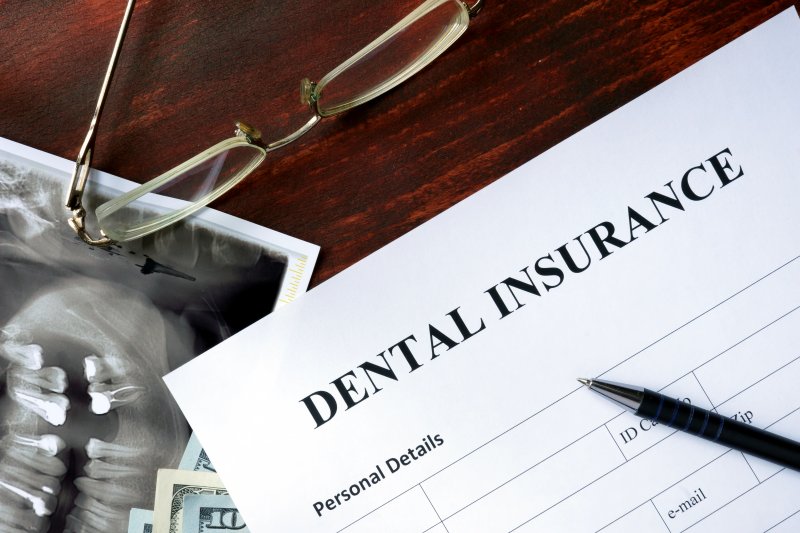
Millions of Americans all over the country have dental insurance and benefit from it each year. In fact, the National Association of Dental Plans reports that 77% of Americans have dental benefits and most of them have private coverage from an employer or group program. However, it can be difficult to navigate your dental insurance plan because it differs from health insurance. Your dentist in Hoover explains what is and isn’t generally covered by your benefits and other helpful information you should know so that you can maximize your coverage for the entire family.
What Types of Dental Insurance Plans Are There?
There are several different types of dental insurance. Here are the most common ones you have to choose from:
- Dental Health Maintenance Organization (DHMO): With this plan, your insurance company gives you a list of dentists that accept the plan for a set co-pay or no fee at all. However, you are unable to receive coverage if you see a dental provider that is not in-network.
- Preferred Provider Organization (PPO): With a PPO plan, you have the option to choose whichever dental provider that you want. You will still have a list of dentists who are in-network with your insurance company, but you can choose one that is out-of-network too. However, if you do this, you will likely have higher out-of-pocket costs.
- Discount Dental Plans: This type of plan allows you to get a discount on dental services from a select group of dentists. None of your care will be covered, but participating dentists will give you a special rate.
What Does Your Dental Insurance Cover?
In general, dental insurance plans tend to follow a 100-80-50 coverage structure. This means that they cover:
- 100% of Preventive Care: This includes regular cleanings, checkups, routine x-rays, and more.
- 80% of Basic Treatments: Basic treatments include periodontal scaling, fillings, and more non-invasive procedures.
- 50% of Major Procedures: Treatments that are more complex would fall under this category. This includes root canals, dental implants, crowns, and orthodontic treatment.
What Else Should You Know?
Here are some terms that will be helpful for you to know in order to navigate and maximize your dental insurance coverage.
- Deductible: This is what you pay each year out-of-pocket before your insurance begins to cover treatment costs. This doesn’t usually apply to diagnostic and preventive treatments.
- Maximum: This is the most money that your plan will cover within one benefit period. The remaining costs will be your responsibility.
- Coinsurance: For patients with a fee-for-service plan, this will pay a predetermined percentage of the cost of your treatment and leave the patient responsible for paying the rest. This part of your out-of-pocket cost is known as “coinsurance.”
- Dual Coverage: If you have benefits from multiple plans, this is called “duel coverage.” However, the total amount paid cannot exceed 100% of your dental expenses.
- Copayment: With a closed network, prepaid, fixed copayment plan, you will pay a set dollar amount for covered services instead of a percentage.
Keep in mind that at the end of the year, your benefits are likely to reset. If your family hasn’t had their regular dental visits in a while, or a household member is in need of a treatment, now would be an excellent time to head to the practice so you don’t need to worry about paying your deductible again. Unused benefits do not carry over, so you should use them while you have them.
About the Author
Dr. Marc W. Moulton is an experienced dentist who has been working in the field for more than 30 years. He is a member of the American Dental Association, Alabama Dental Association, and the American Academy of Cosmetic Dentistry. His practice is in-network with BCBS AL, Delta Dental of AL, Southland, and Metlife. For more information on dental insurance or to schedule an appointment, visit his website or call (205) 988-3360.
